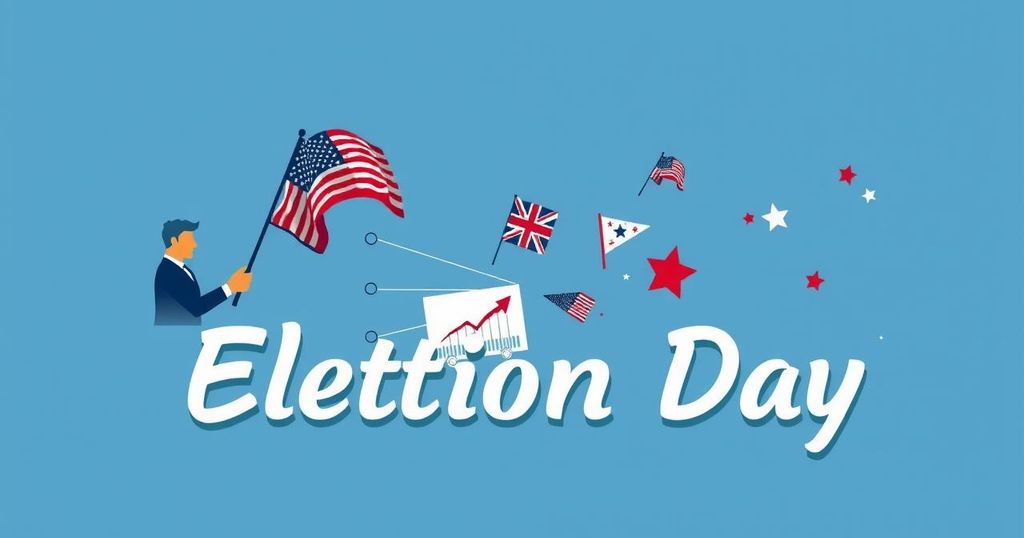A Comprehensive Guide to Election Day: Stakes for Businesses and the Economy

On Election Day, one-third of voters have cast ballots in a tight presidential race, with significant implications for businesses. Trump has the Republican nomination, while Biden has stepped aside for Kamala Harris. Elon Musk’s active support for Trump contrasts with broader concerns over Biden’s regulatory approaches, prompting mixed reactions among business leaders.
On this significant Election Day, a third of American voters have already participated in what has proven to be an unconventional, costly, and fiercely competitive presidential race. Donald Trump secured the Republican nomination decisively, while President Biden, trailing in the polls, made the unexpected decision to step aside in July, paving the way for Vice President Kamala Harris to emerge as the party’s candidate. This election has seen a notable divergence of support amidst Silicon Valley, with tech magnate Elon Musk openly advocating for Trump, raising speculation regarding potential government roles or increased contracts should Trump succeed. Moreover, a shared concern among substantial donors to both candidates arises from dissatisfaction with the Biden administration’s stringent regulatory policies, prompting calls for changes in leadership at the Federal Trade Commission.
The backdrop to this election day is characterized by unprecedented spending and intense competition, marking it as one of the tightest presidential campaigns in recent history. The shifting political landscape has created a climate of uncertainty and anticipation among business leaders, who are acutely aware of the potential economic implications stemming from both candidates’ policies. Notably, the divide among tech industry leaders, particularly around the influence of government regulation, has heightened tensions, shedding light on broader concerns within corporate America regarding the regulatory environment.
In summary, this election day presents a critical juncture in American politics with significant stakes for businesses and the economy. The choices made by voters will likely reshape the regulatory landscape and influence the future of corporate governance. As business leaders navigate this fraught political terrain, their responses and preparations for potential post-election outcomes will be pivotal in the upcoming economic climate.
Original Source: www.nytimes.com








